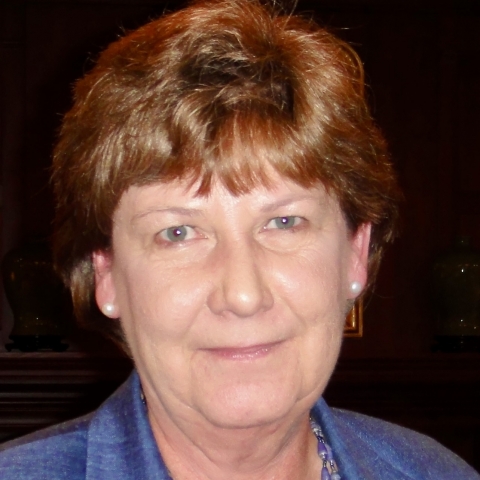Co-Founder and first president Sharon Hewitt shares her thoughts about the Chapter’s growth.
Why did you decide to start an Oregon Chapter of ARCS Foundation? What was the need then, and why is it still crucial today?
Sharon: Our first visit with ARCS National board members was in 2002. I believe each of us was impressed with the presentation, liked the ARCS mission, and we were intrigued by the idea of advancing the sciences while helping attract excellent students to the universities and the state.
The mission remains critical: the more we hear about the issues confronting the world—whether AI, the need for engineers, agricultural challenges, or climate change—scientific solutions and ARCS' involvement are important.
What is your vision for the Oregon Chapter? Has your vision evolved over 20 years?
Sharon: Initially, our vision was to assist OHSU in attracting the best and brightest PhD students by providing unrestricted awards as a sort of 'signing bonus' to the packages the university could offer prospective students. We hoped to gradually expand our awards to provide funds to both OSU and UO. We hoped donors and students would form relationships, and the organization would provide members with unique opportunities to learn about cutting-edge science from professors and the students.
You were the Chapter's first president: how do you think the office has changed?
Sharon: It is more complex now! Initially, we had minimal operating funds. National provided some funds, but the first goal was to attract 65 women willing to take a leap of faith that we could organize and get the organization off the ground to provide universities with significant funds to “make a difference.” We felt it important to create an organization that members felt a part of and involved in.
We also thought about setting the Chapter up for future success by establishing initial budgets, operating reserves, and internal control policies, educating our university partners about ARCS and developing systems and expectations for them to select scholars and track their progress. We were fortunate to be able to offer 11 awards the first year. We wanted to offer a consistent number of awards without big peaks and valleys. We really had to hustle to offer ten awards in year two!
Currently, the Chapter faces some of the same obstacles but on a bigger and broader scale. We have a much bigger budget and need larger operating reserves, more donors, and many more policies and procedures, as well as staff. We have more students to track and more university departments to coordinate with. There are also 20 years of institutional memory to maintain.
What do you think are ARCS Oregon's greatest strengths?
Sharon: Based on the feedback we receive from our university partners and students, we are making a difference in attracting students to our universities. Our mission remains relevant.
Where do you see ARCS Oregon in ten years? In 20 years? What will be crucial for us moving forward?
Sharon: Our Chapter's growth has been rapid and, some might say, unsustainable. We need to determine what is sustainable and desirable going forward—in all areas.
In ten years, I hope we continue to grow our presence in the state and help increase endowed awards to universities because those endowments will fund students in perpetuity. In 20 years, I hope we are a well-recognized charitable organization that has made significant contributions to STEM education throughout the state.
ARCS Oregon's success has been more than I could ever have imagined in 2004 and probably more than the other founders might have imagined (but I can't speak to their thoughts). Our success is directly attributable to phenomenal ARCS leadership and board involvement over the years, as well as its members. We are one of the most successful ARCS Chapters, and we should be very thankful and proud.
Click here to read more about ARCS Foundation Oregon’s history.
By Jamie Anderson
VP, Communications Commitee

